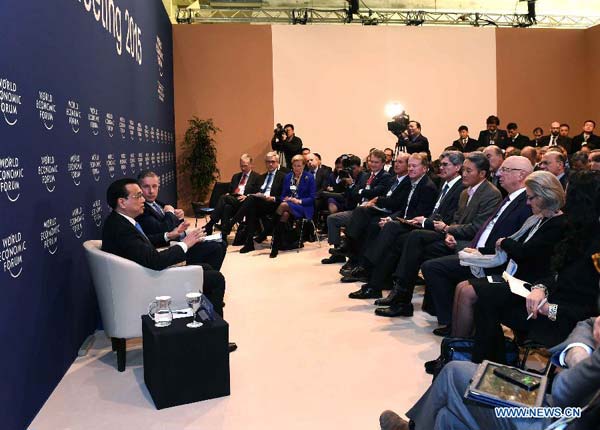Li predicts bright future for real estate
By ZHAO YINAN in Davos, Switzerland (China Daily) Updated: 2015-01-22 02:43
 |
|
Chinese Premier Li Keqiang (L front) meets representatives of the International Business Council of the World Economic Forum (WEF) in Davos, Switzerland, on Jan. 21, 2015.[Photo/Xinhua] |
Li's remarks on the real estate industry are rare, as he has refrained from commenting on the market.
Heiner Mikosch, a postdoctorate researcher at the KOF Swiss Economic Institute of ETH (the Swiss Federal Institute of Technology) in Zurich, said the biggest challenge to the Chinese economy in 2015 is to prevent a hard landing in the housing market.
Concerns over the possibility of a real estate burst are widespread, as the sector connects directly with key industries such as steel, cement and furniture manufacturing.
Speaking of the priorities for his 2015 reform agenda, Li said cutting red tape, easing restrictions on businesses and moving further intofinancial reformwill be at the top of the list.
A report by an institute under the Chinese Academy of Social Sciences has predicted that housing prices will rise further in 2015 and cities that still restrict multiple-home purchases are expected to scrap the policy to encourage demand.
A property downturn since the start of 2014 had prompted most of the cities that imposed restrictions on home purchases to ease them. There are only five cities where the curbs remain -Beijing, Shanghai, Guangzhou, Shenzhen andSanya.
Ji Tao, Zhang Chunyan and Liu Jia contributed to this story.




